1842 Boston Revival
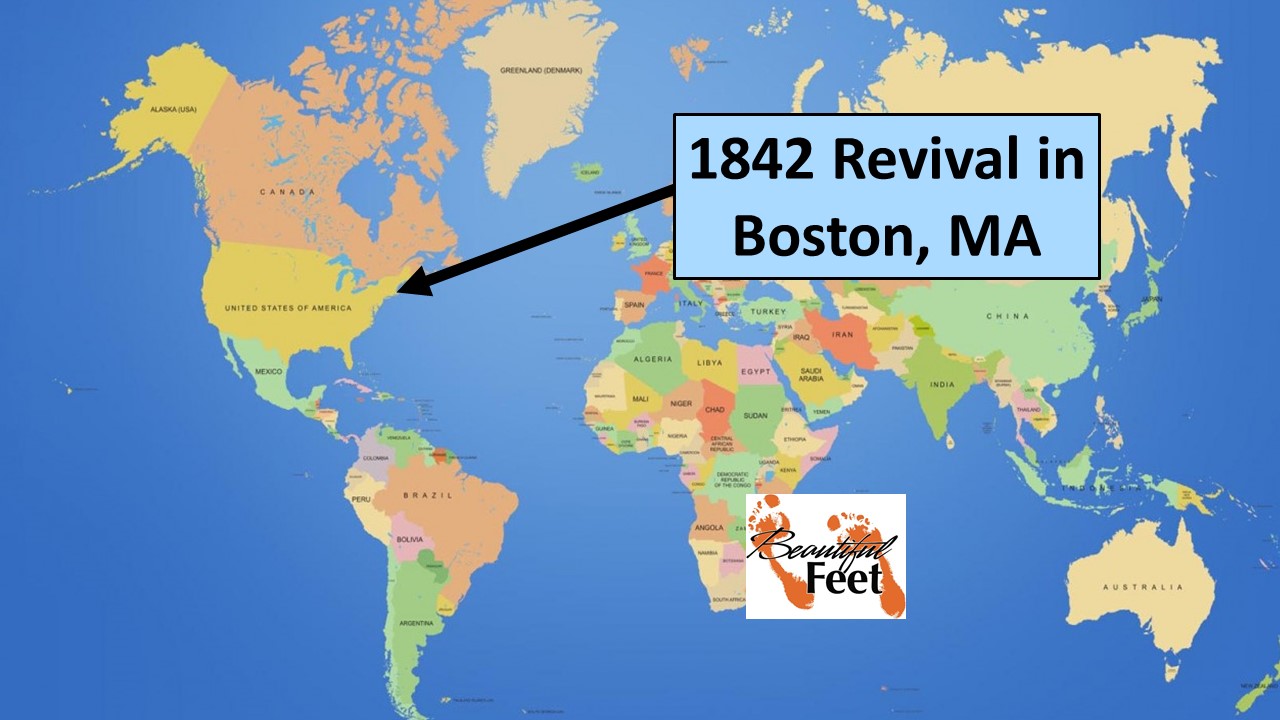
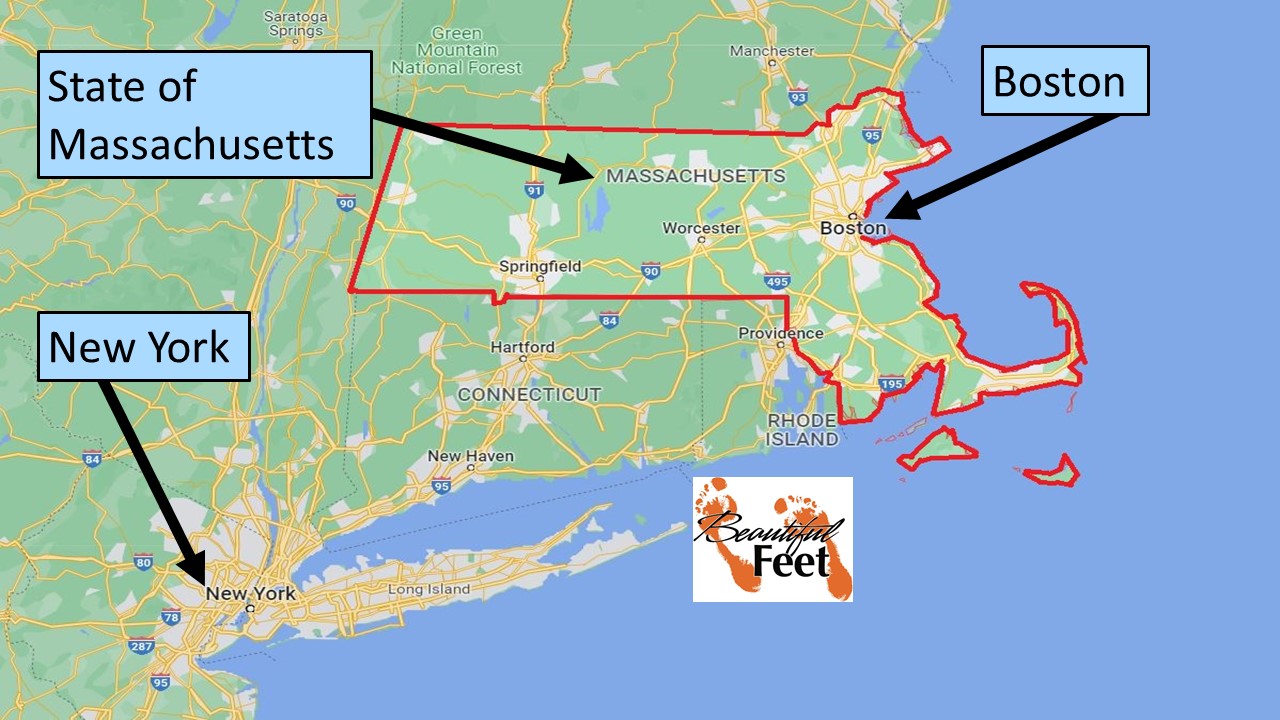
Introduction
Boston, Massachusetts, in the early 1800s, was filled with churches whose members had but “a form of godliness.” There were many churches that had pastors who had never had a born-again experience and doubted that such a thing was even possible.
Church members included those who were unconverted. Those who wanted to be respected in the community would attend, and even pay to rent pews. That payment enabled them to exert control over the affairs of the church.
Concerning the community as a whole, it was said that
Many are profane, drunkards, lascivious, scoffers at the power of godliness, despisers of those that are good, disobedient; others are only civil and outwardly conformed to good order, by reason of their education; but never knew what the new birth means.
The Puritan lifestyle had all but faded out and the “Age of Enlightenment” had taken over, with pastoral ministry even being conducted by those who denied the basic tenets of the Bible.
Beginning in 1840, evangelistic efforts were initiated in the city of Boston, and those efforts produced remarkable church growth in most of the Bible-believing churches.
The evangelical efforts used were conducted mostly through individual members of congregations. A few notable evangelists were also invited to come and conduct series of services, some of whom were Edward N. Kirk, Charles G. Finney, and Elder Jacob Knapp.
Early Signs of Revival
Signs of genuine revival began to emerge as early as July 1841, and it became more pronounced a couple months later.
Extraordinary Prayer
The revival began like most revivals have through the centuries, with a “spirit of prayer” being poured out on those who were hungry for God to have His way in His Church.
It is evident that there was an awakened spirit of prayer considerably extensive in the city during the autumnal months.
Notable Evangelists
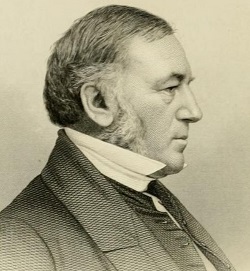
Edward N. Kirk
Edward N. Kirk
In the summer of 1840, Edward N. Kirk began preaching a 9-day series of messages in the Boston Park Street Church.
The theme for his messages at this time were: “Prepare to Meet Thy God.” His sermons made such an impact, that
The daily services, afternoon and evening, were soon attended by overflow crowds, the people filling the aisles and the pulpit stairs. Many were turned away for lack of space.
Report on the Meetings
► There were 100 new members added to the church.
► Testimony night: On one of the evenings during Kirk’s meetings, an opportunity was given for personal testimonies of conversions, and 71 people shared of their profession of faith in Christ.
► Prayer meetings were held before and after each meeting.
With such success that summer, Kirk was invited back for another series of services in the fall of that year. And in the fall of the following year, 1841, Kirk was back again at Park Street Church.
Following a third series of meetings by Kirk in 1842, a new church was started–the Mount Vernon Congregational Church–with Kirk being asked to be the pastor. He served that church from 1842 till the day of his death in 1874.
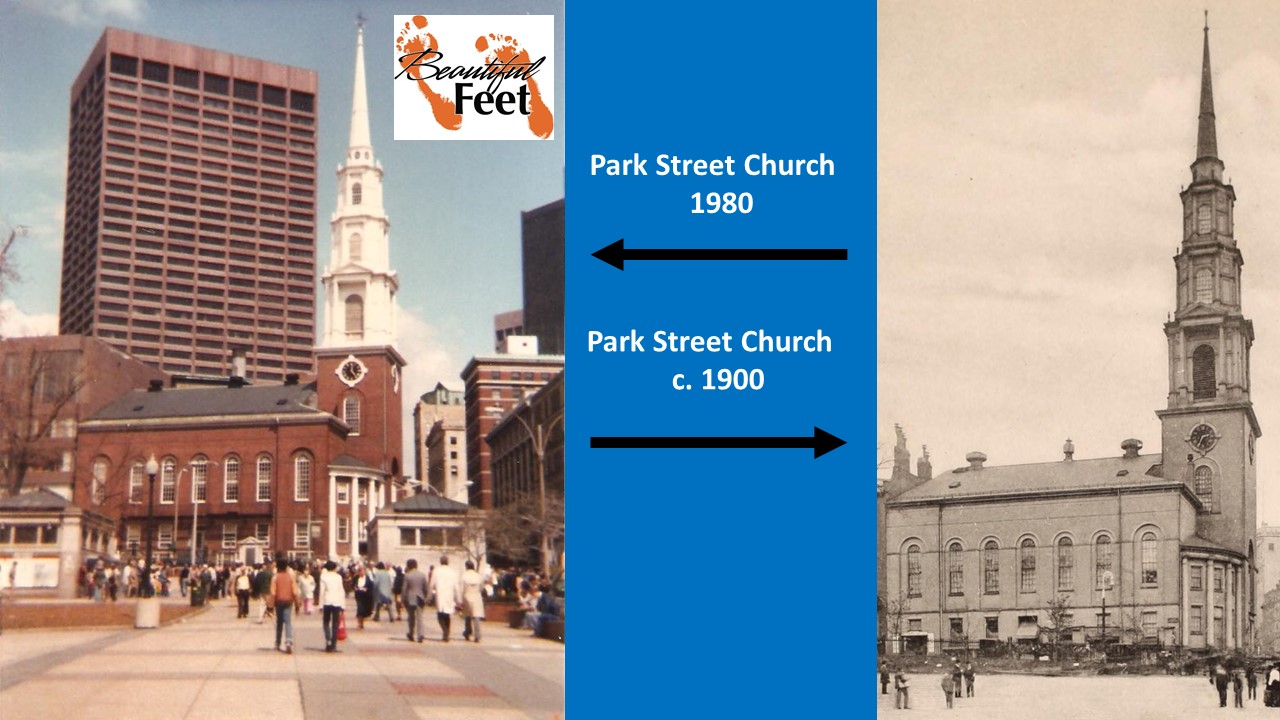
Park Street Church: One of the churches where Edward N. Kirk ministered.
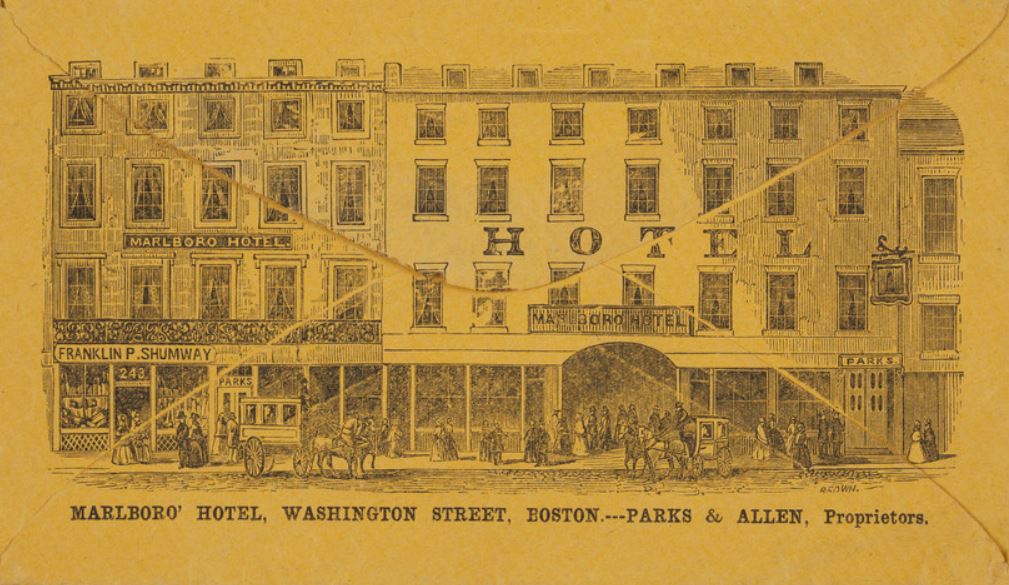
Envelope, with a picture of the Marlboro Hotel. This was the location where the Free Congregational Church held their meetings. It was also where Charles G. Finney ministered while in Boston.
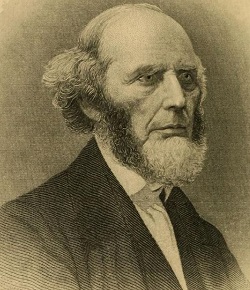
Charles G. Finney
Charles G. Finney
In October 1841, Charles Finney was invited to speak at the Free Congregational Church (Marlboro Chapel). During his time in Boston, in addition to his ministry at the Free Congregational Church, he spent significant time ministering to inquirers from various congregations, answering their questions and giving them directions to taking their first steps toward making a decision to follow Christ.
The Marlboro Hotel, which was the base of his ministry, was a Christian hotel and chapel bought by Christian abolitionists. The Free Congregational Church meeting there was open to revivalists, abolitionists, and others promoting social reform.
While in Boston, Finney reported on the services he conducted:
In 1842, I was strongly urged to go and occupy the Marlboro chapel, and preach for a few months. I went and began my labors, and preached with all my might for two months. The Spirit of the Lord was immediately poured out, and there was a general agitation among the dry bones. I was visited at my room almost constantly, during every day of the week, by inquirers from all parts of the city, and many were obtaining hopes from day to day.
Finney mentioned this revival in relation to Elder Jacob Knapp, whom we write of below:
This was the time of great revival in Boston. It prevailed wonderfully, especially among the Baptists, and more or less throughout the city. The Baptist ministers took hold with brother Knapp, and many Congregational brethren were greatly blessed, and the work was very extensive.
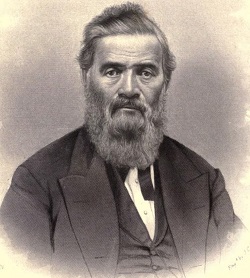
Elder Jacob Knapp
Elder Jacob Knapp
Jacob Knapp arrived in Boston at the end of December 1841, and preached until March 18. Being a Baptist preacher, he primarily ministered in the Baptist churches.
His schedule was full, with these being typical:
► He preached every afternoon and evening.
► Part-time he held predawn services in the South Boston Baptist Church.
► He held counseling (inquiry) meetings with new converts or those “inquiring” about the state of their soul, from 10am – noon.
► At the close of the evening’s service, he held another inquiry meeting for about one hour.
About the predawn meetings, Knapp said,
Even at this early hour the house [South Boston Baptist Church] was crowded, for the religious interest was so intense in the community, that almost any sized house could have been filled at almost any hour in the twenty-four.
As Knapp preached against false teaching (Unitarianism and Universalism), the liquor trade, and other things, he experienced strong opposition.
While he was ministering at the Bowdoin Square Church, mobs would gather outside, threatening to break up the meeting or stone or club Knapp. As the series of meetings went on, the mobs grew more intense.
Knapp commented about one who was opposing him:
An atheist ‘sat up all night preparing clubs with which to break my head, but coming in to hear me, God broke his heart. The chief officer, who called out the Lancers to quell the riot and disperse the mob, confessed that his heart was in sympathy with the mob and, that he hoped they might succeed, though at the same time he was resolved to discharge the duties of his office. He was convicted of his sins, and became an inquirer after salvation.’
In a letter written by a B. Dunbar to his mother, Dunbar expressed his opinion of Knapp, which seemed to follow the popular opinion of many in the city at that time. Some of the things Dunbar said were:
Knapp…, is raising the devil up here.
He has made a great many raving crazy and are carried to the insane hospital.
I think he ought to be strung up alive.
As people gathered to pray against the attempted assaults, the mayor, newspapers, as well as other pastors, came to their aid and the mobs were finally dispersed.
A seminary professor mentioned that he was impressed with Knapp’s preaching, although he said that some of what Knapp said was out of place:
He is a man of genius and power, and though his preaching is not always in good taste, yet no thief, or profane swearer, or drunkard, or adulterer, can sit and listen to him a great while without feeling that the constable is after him.
A Boston Baptist weekly newspaper, the Christian Watchman and Reflector, made the following comment on February 9, 1841:
The work has now attained to a degree of prevalence and power that renders it utterly impossible for us to convey to our more distant readers an adequate conception of what God is permitting his people to witness and enjoy in Boston. Every day brings to light facts and scenes of the most thrilling interest. Among the converts which now amount to hundreds, there are persons from every class and of every description of moral character.
About the number of conversions, Knapp stated:
It will never be known, until the day of judgment, how many were converted in this revival. Two thousand persons were added to the churches composing the Boston Baptist Association during that year. Hundreds were added to churches of other denominations, and many came in from the surrounding villages and were converted. Indeed, there were instances of persons coming from distant parts, and taking rooms at boarding-houses, for the sake of attending the meetings, in order that they might obtain salvation.
Results of the Revival
Statistics were obtained from at least 44 churches that were considered Bible-believing. Out of that 44, there were 4,005 that were reported as having become members of these churches. (In 1840, the population of Boston was 93,383.)
That total does not take into account the thousands that were from churches outside the area, or people who were not yet approved members of churches, as the churches at this time had a probationary period of about 6 months wherein a person would prove their lifestyle change and commitment to Christ before being admitted to full church membership.
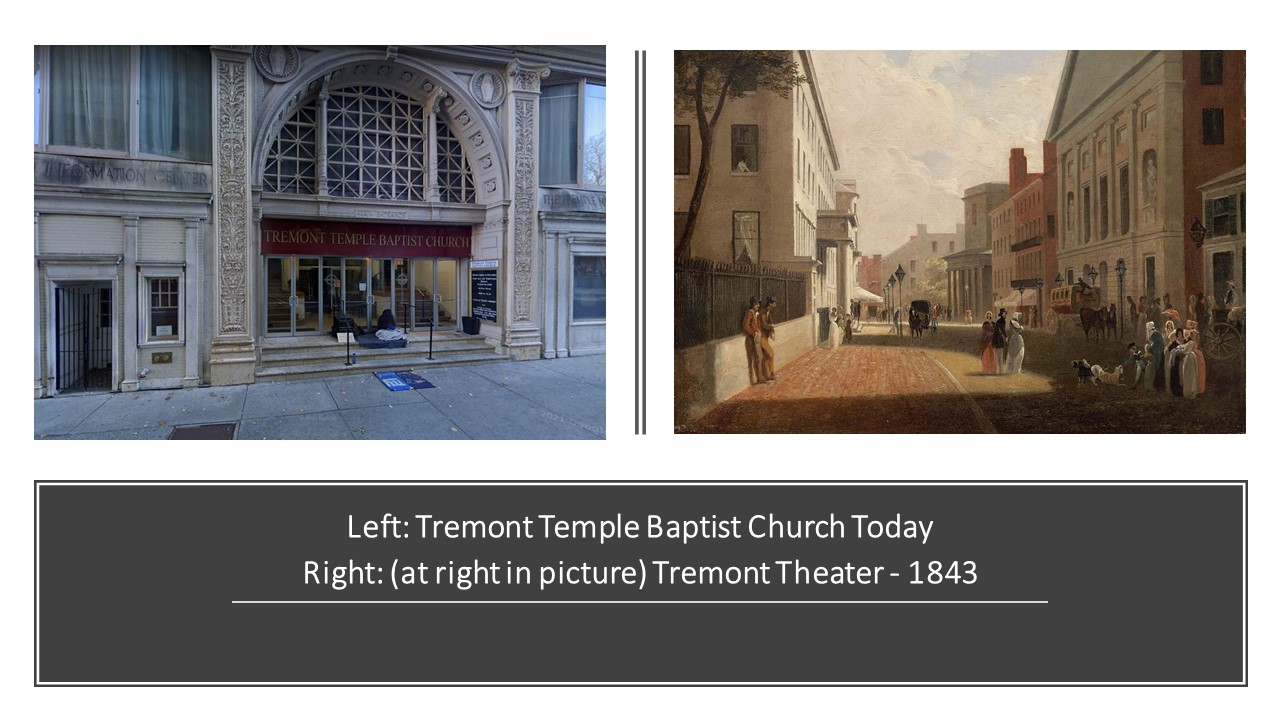
► As churches became the center of attention, the theaters emptied, and by March 2, 1842, the Tremont Theater had to close. It was then sold in December 1843 and renamed Tremont Temple Baptist Church.
► Many documented conversion stories can be read here.
► Churches were strengthened.
► Marriages and relationships of all types were restored.
► Billiard halls were empty.
► Bars were empty.
► Several rum dealers were converted.
The entire city was impacted, with Jacob Knapp having observed:
You could scarcely meet a man in the market or on the street whose countenance did not indicate seriousness and whose language was not subdued. The Spirit of God was poured out on the whole city, and all the people seemed to be affected by the power of his presence.
Primary Sources
► Autobiography of Elder Jacob Knapp by Jacob Knapp
► Boston Revival of 1842 by Martin Moore
Secondary Sources
► Charles G. Finney by Wikipedia
► Edward Norris Kirk by Wikipedia
► History of the Old South Church of Boston by Elizabeth P. Sohier
► History of the Old South Meeting-House in Boston by Everett W. Burdett
► History of Revivalism in Boston by Rudy Mitchell
► Jacob Knapp by Wikipedia
► Lectures on Revivals by Edward Norris Kirk
► Life of Edward Norris Kirk by David Otis Mears
► Memoirs of Rev. Charles G. Finney by Charles G. Finney
► Unpublished Letter by B. Dunbar
Return to List of Revival Stories
Chet & Phyllis Swearingen:
Office: (260) 920-8248
romans1015@outlook.com
Beautiful Feet
P.O. Box 915
Auburn, IN 46706

